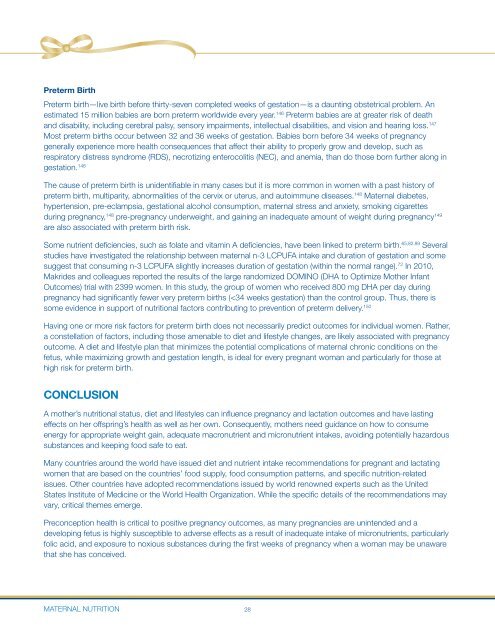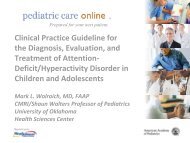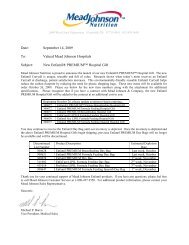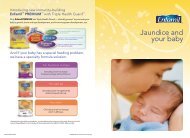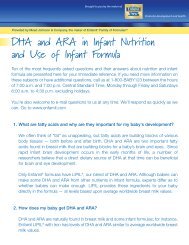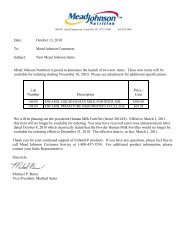LB2882MaternalNutriti+ - Mead Johnson Nutrition
LB2882MaternalNutriti+ - Mead Johnson Nutrition
LB2882MaternalNutriti+ - Mead Johnson Nutrition
You also want an ePaper? Increase the reach of your titles
YUMPU automatically turns print PDFs into web optimized ePapers that Google loves.
Preterm birth<br />
Preterm birth—live birth before thirty-seven completed weeks of gestation—is a daunting obstetrical problem. An<br />
estimated 15 million babies are born preterm worldwide every year. 146 Preterm babies are at greater risk of death<br />
and disability, including cerebral palsy, sensory impairments, intellectual disabilities, and vision and hearing loss. 147<br />
Most preterm births occur between 32 and 36 weeks of gestation. Babies born before 34 weeks of pregnancy<br />
generally experience more health consequences that affect their ability to properly grow and develop, such as<br />
respiratory distress syndrome (RDS), necrotizing enterocolitis (NEC), and anemia, than do those born further along in<br />
gestation. 148<br />
The cause of preterm birth is unidentifi able in many cases but it is more common in women with a past history of<br />
preterm birth, multiparity, abnormalities of the cervix or uterus, and autoimmune diseases. 148 Maternal diabetes,<br />
hypertension, pre-eclampsia, gestational alcohol consumption, maternal stress and anxiety, smoking cigarettes<br />
during pregnancy, 148 pre-pregnancy underweight, and gaining an inadequate amount of weight during pregnancy 149<br />
are also associated with preterm birth risk.<br />
Some nutrient defi ciencies, such as folate and vitamin A defi ciencies, have been linked to preterm birth. 65,82,89 Several<br />
studies have investigated the relationship between maternal n-3 LCPUFA intake and duration of gestation and some<br />
suggest that consuming n-3 LCPUFA slightly increases duration of gestation (within the normal range). 72 In 2010,<br />
Makrides and colleagues reported the results of the large randomized DOMINO (DHA to Optimize Mother Infant<br />
Outcomes) trial with 2399 women. In this study, the group of women who received 800 mg DHA per day during<br />
pregnancy had signifi cantly fewer very preterm births (


